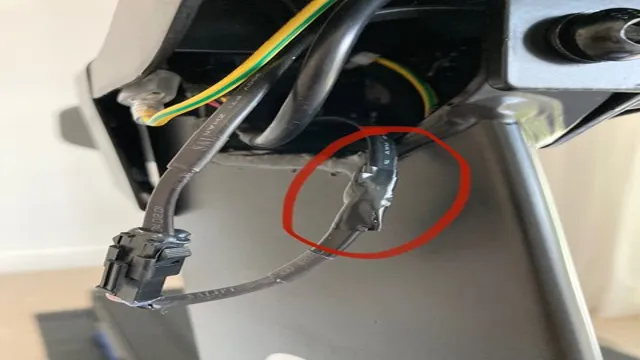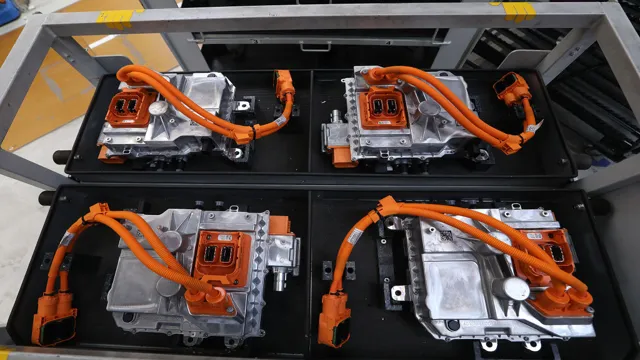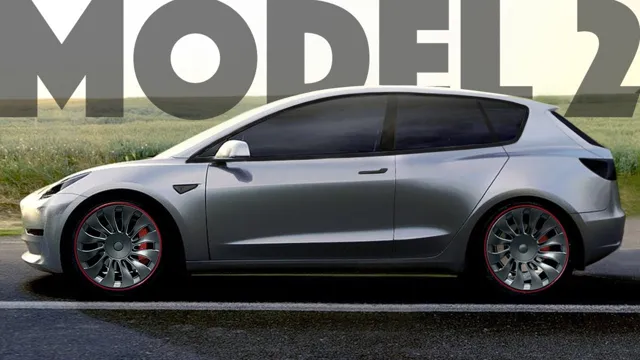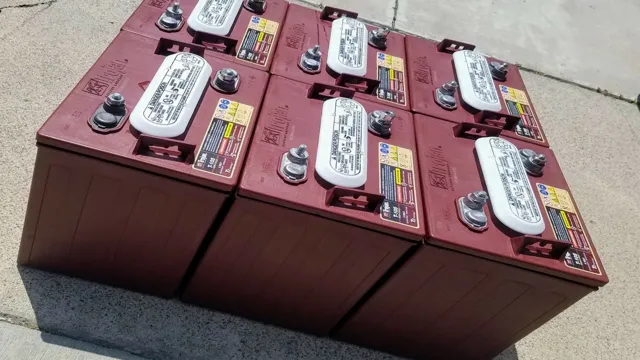The Shocking Truth About Electric Car Battery Costs: How They’ve Changed Over Time
As more and more people become concerned about the environment, the demand for electric cars has grown significantly. Electric cars are more sustainable and less polluting than traditional gas-powered vehicles. However, the purchase and maintenance of an electric car can be more expensive than that of a gas-powered car.
One of the key factors that makes electric cars costly is the battery. Over time, the cost of electric car batteries has decreased significantly, making them more affordable for consumers. This is good news for those who want to switch to an electric car but are hesitant due to the initial investment.
Furthermore, the issue of range anxiety, which is a common concern for people considering electric cars, has also been addressed, thanks to the advancements in battery technology. Electric car battery technology has come a long way, and they have become more efficient, durable, and affordable. However, some people still believe that electric cars are not worth the investment or the hassle.
In this blog post, we will explore the costs associated with electric car batteries over time, what affects the cost, and how much you can expect to spend on maintenance, repairs, and replacements. Our aim is to help you understand whether electric cars are a good investment and, if yes, when would be the right time to make the switch.
Introduction: The Evolution of Battery Technology
The cost of electric car batteries over time has been on a steady decline, making EVs more affordable and accessible to consumers. This trend in declining battery costs can be attributed to the evolution of battery technology, which has been going on for decades. The earliest batteries used in electric cars were lead-acid batteries, which were heavy, had a short lifespan, and were unreliable.
However, as technology advanced and lithium-ion batteries were introduced, electric cars became more practical and efficient. As the demand for electric cars continues to grow, manufacturers are investing more heavily in research and development to improve battery performance and lower costs. This has led to a reduction in battery prices, making electric cars more competitive with conventional cars in terms of cost and performance.
As the cost of electric car batteries continues to drop, we can expect to see more people make the switch to electric cars in the near future.
Overview of Battery Cost Trends
Battery costs have seen a significant decline over the past several years. The evolution of battery technology has played a crucial role in driving these cost trends. As research and development focused on improving battery life, efficiency, and performance, the cost of manufacturing batteries has decreased.
The increase in demand for electric cars and renewable energy storage has also contributed to reduced battery costs. With advancements in materials and manufacturing techniques, it is expected that battery costs will continue to decline. The adoption of electric vehicles and renewable energy storage systems is likely to accelerate as battery costs decrease.
Consequently, as battery technology continues to evolve, it is expected that the cost of batteries will continuously decline, leading to more innovation in the renewable energy industry.
Factors That Affect Battery Costs
Battery technology has come a long way over the years, and with it, the cost of batteries has also evolved. Factors that affect battery costs include materials, manufacturing processes, and economies of scale. Materials such as cobalt, lithium, and nickel are crucial to the battery’s performance and their sourcing can be costly.
Manufacturing processes such as electrode fabrication, assembly, and testing can also increase the price of batteries. As the demand for batteries increases, economies of scale come into play, which can lead to lower costs over time. The evolution of battery technology has brought about cheaper and more efficient batteries, making them more accessible to the masses.
It’s incredible to think how batteries have evolved from being bulky, expensive, and not widely available to everyday items such as rechargeable batteries for tech devices and electric vehicles.
Historical Trends in Battery Costs
The cost of electric car batteries over time has been a big factor for many people as to why they decide not to transition to an all-electric vehicle just yet. However, there is reason to believe that costs will start to decrease in the near future. Looking back at historical trends, the cost of lithium-ion batteries has decreased by nearly 97% since 2010, making electric cars more affordable than ever before.
Improved manufacturing processes and economies of scale have helped bring down battery costs, and it’s expected that prices will continue to decline. In fact, some automakers are working on developing their own battery technology to further reduce costs and increase range. With these advancements, the cost of electric car batteries may eventually become even lower than the cost of traditional gasoline engines.
Data on Battery Costs by Year
Battery costs have been steadily declining over the years, thanks to technological advancements in the production of lithium-ion batteries. In the past decade, the cost of batteries has reduced by more than 80%. In 2010, a kWh of battery cost around $1000, but by 2019, the same amount cost around $130.
This is due to economies of scale since more companies are now investing in the production of electric vehicles, and battery production has increased significantly. This has made electric vehicles more affordable to the masses, making it more likely that they will be adopted on a larger scale. The trend is expected to continue as more research is being conducted to find alternative sources of raw materials, making battery production even more efficient and cost-effective.
Analysis of Historical Trends
Historical Trends in Battery Costs Over the past decade or so, we have witnessed a significant drop in the cost of batteries, particularly lithium-ion batteries used in electric vehicles. This has been driven by a combination of factors such as advancements in technology, economies of scale, and increased competition in the market. In 2010, the cost of lithium-ion batteries was around $1,000 per kilowatt-hour (kWh).
Fast forward to 2021, and the cost has dropped to around $137 per kWh, a whopping 87% reduction in just over 10 years. This trend is likely to continue, with some projections saying that we could see the cost drop to as low as $58 per kWh by 2030. The implications of this trend are significant, with the potential to make electric vehicles more affordable, increase their range, and accelerate the transition towards a greener, more sustainable future.
Key Takeaways from Historical Trends
Historical Trends in Battery Costs One of the most significant takeaways from historical trends in battery costs is the fact that prices have been declining consistently over the years. This decline in battery costs has been fueled by various factors, such as advancements in technology, increased production volumes, and economies of scale. For example, the cost of lithium-ion batteries has dropped by over 80% in the last decade alone, making them much more affordable and accessible for various applications, including electric vehicles and renewable energy storage systems.
This trend is set to continue, with many experts predicting that battery costs will continue to decline as the technology improves and becomes more mainstream. As a result, we can expect to see increased adoption of battery-based technologies, especially in the renewable energy and transportation sectors. This shift towards battery-powered solutions is a crucial step towards achieving a more sustainable and eco-friendly future, and we can all play our part by supporting this trend through our daily actions.
Predictions for Future Battery Costs
The cost of electric car batteries over time is a crucial factor in the widespread adoption of electric vehicles. Experts predict that the cost of battery packs will continue to decrease in the future, making electric vehicles more accessible and affordable. According to a report by Bloomberg New Energy Finance, the cost of a lithium-ion battery pack is set to reduce by 58% by 2030, with an average price of $94/kWh.
Currently, the cost of a battery pack is around $137/kWh. The decrease in prices can be attributed to advances in battery technology, economies of scale, and increased demand for electric cars. As more companies invest in battery technology and the production of electric vehicles, the cost of batteries will continue to decrease.
This would make electric vehicles more cost-competitive compared to fossil fuel-powered cars and lead to more adoption of electric vehicles in the future.
Forecasted Trends in Battery Costs
Battery costs have been dropping significantly over the past decade and experts predict that they will continue to do so in the near future. According to Bloomberg New Energy Finance, the cost of lithium-ion batteries has dropped by 87% since 20 They estimate that by 2023, the cost per kilowatt-hour will be around $100, making electric vehicles cheaper to produce than their gas counterparts.
Other factors driving down battery costs include advances in production processes, economies of scale, and increased competition in the industry. Additionally, some companies are exploring alternative technologies, such as solid-state batteries, which have the potential to be even cheaper and more efficient than current options. It’s clear that battery costs are going to play a major role in the widespread adoption of electric vehicles and renewable energy storage solutions, and the good news is that the future looks bright for both consumers and the planet.
Factors That Will Impact Future Battery Costs
Battery costs have been steadily decreasing in recent years, and many experts predict that this trend will continue in the future. Several factors will impact the cost of batteries, including advances in technology and an increase in demand for electric vehicles. As battery production and manufacturing techniques improve, costs will likely decrease further.
Additionally, the development of new and more efficient battery chemistries could lead to even lower costs. Another important factor is the availability and cost of raw materials required to make batteries, such as lithium, cobalt, and nickel. Changes in the supply and demand for these materials could also impact battery costs in the future.
Overall, the future of battery costs looks promising, and as more companies invest in battery production and development, we can expect to see even more innovation and affordability in this crucial technology.
Conclusion: What This Means for Electric Vehicles
Well, it seems that the cost of electric car batteries over time has been on a rollercoaster ride, much like the fluctuating energy levels of a Tesla Model S. At first it was high, then it went down, then up again, only to eventually level out. But the good news is that despite these ups and downs, the cost of electric car batteries is still trending downward overall, meaning that the future of green transportation looks brighter than ever.
So, let’s charge up and hit the road towards a more sustainable future!”
FAQs
What has been the trend in the cost of electric car batteries over the past decade?
The cost of electric car batteries has steadily decreased over the past decade, making electric cars more accessible to consumers.
How does the cost of electric car batteries compare to traditional gasoline car engines?
The initial cost of electric car batteries is higher than traditional gasoline car engines, but the long-term savings in fuel costs make electric cars a more cost-effective option.
Will advancements in technology bring down the cost of electric car batteries in the future?
Yes, advancements in battery technology and increased production will likely bring down the cost of electric car batteries in the future.
What factors impact the cost of electric car batteries?
Factors such as raw materials, production costs, research and development costs, and demand can all impact the cost of electric car batteries.





